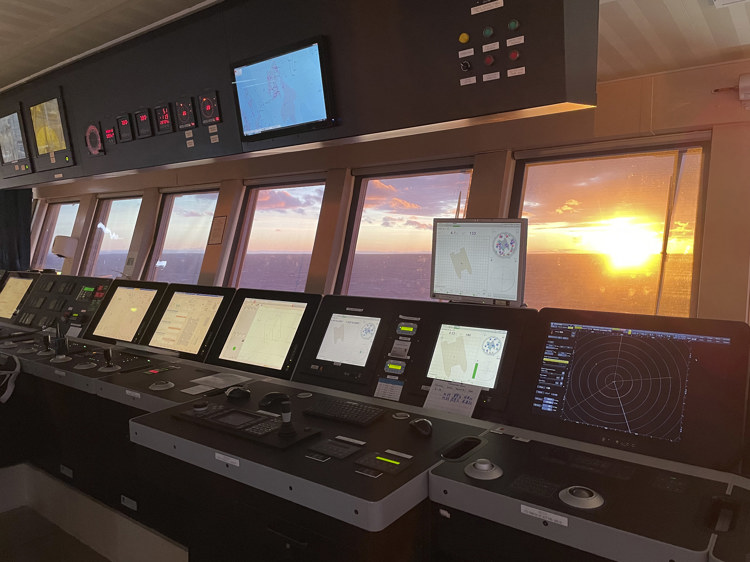
COSL’s ambitious ‘Energy Control’ project has been launched as a means of simultaneously slashing greenhouse gas emissions and substantially lowering fuel and maintenance overheads on the company’s rigs situated on the Norwegian shelf in the North Sea. Having already spent years pursuing energy efficiency in its drilling operations, COSL called upon the technological expertise of Kongsberg Maritime and the specialist knowledge of NOV to take its corporate aspirations to the next level.
Collaboration between the firms arrived at an integrated solution which combines Kongsberg Maritime’s energy management systems with NOV’s research into energy optimisation. Analysis of historical data on estimated maximum power consumption derived from COSL’s semi-submersible DP3 rigs COSLPromoter and COSLInnovator revealed that it would be possible to make changes that removed the need to run all six of its 4,800kW Wärtsila Vasa 12V32 diesel during drilling operations.
While NOV leveraged this data to work on a new software update for optimal energy usage, Kongsberg Maritime in turn used the estimates to develop the most targeted and efficient means of controlling onboard energy production and distribution. A core principle of the joint solution was to limit and optimise generator usage, and it was soon established that the rig would still be able to carry out full drilling operations using only three of its diesel generators, on average.
By halving the generator capacity, the engines operate at higher loads, which in tandem with the switch-off of the other units results in radically improved fuel efficiency, a sharp decrease in carbon deposits, and a concurrent reduction in maintenance requirements. The annual figures are impressive: fuel consumption will be reduced by around 2,300 tonnes, CO2 emissions by 7,300 tonnes and NOx by 125 tonnes, equating to an overall saving in fuel and emissions of more than 25%. The project is approved and supported by the NOx Fund, a Norwegian Government initiative for reducing NOx emissions.
Kongsberg Maritime’s patented DP system technology is key to maintaining the efficiency of the rig’s installed thrusters, enabling the deployment of a dynamic load prediction strategy which anticipates thruster requirements. The consequent eradication of spikes yields a significant portion of the overall fuel saving. Meanwhile, a KONGSBERG K-IMS (Information Management System) collates the rig’s performance data and uploads it to the cloud so that ongoing improvements can be verified against benchmarked data. K-IMS data is at present being used as an informational basis for setting up a shore-based operations centre at COSL’s main office in Stavanger, Norway.
“The direct assistance of Kongsberg Maritime and NOV, with Kongsberg Maritime as the turnkey provider of this delivery, has been invaluable in bringing this project to fruition,” says COSL project leader Torfinn Kalstø. “We can now accomplish complete drilling operations on COSLPromoter and COSLInnovator while using less than 20 tonnes of fuel per day, with scope to reduce that figure even further. We also have the reassurance of knowing that the spare generators are on hand should any changes in conditions or circumstances require them to be used.”
“We’re serious about performance and sustainability,” adds Morten Firing, Operations Manager Offshore & LNG, Global Customer Support, Kongsberg Maritime, “and it’s very encouraging news for the future energy sector that we share this essential goal with far-sighted companies such as COSL and NOV. Our integrated solution is delivering significant improvements in environmental sensitivity and operational cost-effectiveness, making an inarguable case for the adoption of green, digital strategies across the maritime industry. Meanwhile, the built-in digital solution for receiving real time performance data on shore will allow for continuous improvement in all aspects of rig operation for the future.”
For further information, please contact:

